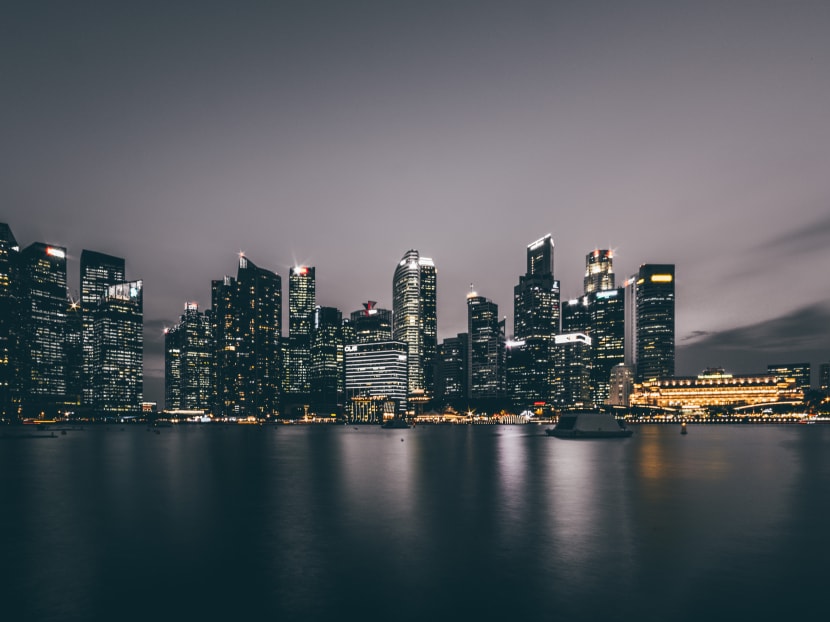Singapore pledges crackdown on white-collar crime
SINGAPORE — The Republic says it's getting more serious about tackling white-collar crime. The police force's financial crime-fighting unit — the Commercial Affairs Department — has declared a goal to target ill-gotten gains "more proactively," especially those from overseas. The crackdown follows several high-profile cases, notably an investigation into links between financiers in the city state and the troubled Malaysian state fund known as 1MDB. At stake is the nation's reputation as a safe — and responsible — hub for finance and business.

Singapore says it's getting more serious about tackling white-collar crime. The police force's financial crime-fighting unit — the Commercial Affairs Department (CAD) — has declared a goal to target ill-gotten gains "more proactively," especially those from overseas. Photo: Eugene Lim/Unsplash.com
SINGAPORE — The Republic says it's getting more serious about tackling white-collar crime. The police force's financial crime-fighting unit — the Commercial Affairs Department (CAD) — has declared a goal to target ill-gotten gains "more proactively," especially those from overseas. The crackdown follows several high-profile cases, notably an investigation into links between financiers in the city state and the troubled Malaysian state fund known as 1MDB. At stake is the nation's reputation as a safe — and responsible — hub for finance and business.
1. Is white-collar crime a particular problem?
Singapore ranks among the least corrupt nations globally, but it's surrounded by countries at the other end of the scale, making it vulnerable to efforts to channel dodgy funds into the financial system. In a 2015 report on global financial secrecy, which rated nations for factors including illicit money flows and tax haven status, Singapore ranked fourth — behind Switzerland, Hong Kong and the US — recent scandals at Singapore companies, including bribery at Keppel Offshore & Marine Ltd. and graft at train operator SMRT, highlight how low-crime Singapore isn't immune to financial wrongdoing.
2. What happened with 1MDB?
Prosecutors described it as Singapore's largest and most complex money-laundering case, with US investigators alleging that US$3.5 billion (S$4.6 billion) went missing from the Malaysian fund. In Singapore, two Swiss private banks were ordered to shut, other large banks were fined, assets were seized and eight people were banned from the finance industry. The CAD's joint investigation with public prosecutors and the central bank resulted in Singapore becoming the first (and so far only) country to have indicted and jailed bankers in the globe-spanning saga. The investigation continues.
3. What exactly is the CAD?
One of four specialist police units in Singapore, the agency probes criminal financial wrongdoing from market-rigging to money-laundering. (Corruption and bribery are handled by the Corruption Practices Investigation Bureau, an independent agency.) The CAD was founded in 1984 as part of the finance ministry before switching to the police force in 2000. The 250-strong department is mostly made up of former prosecutors, graduates with business or law degrees and veteran police officers.
4. Is its workload increasing?
It looks that way. The number of money-laundering joint-probes with international counterparts rose to 13 in 2016 from five the year before. Asset seizures in foreign-offence cases soared nearly fivefold to S$165 million in the same time frame, when the number of suspicious transaction reports the CAD received jumped 12 per cent to 34,129. The department says its work is getting more challenging as white-collar crime becomes technologically more sophisticated and increasingly transnational.
5. Has it handled any other big cases?
The agency joined forces with the Monetary Authority of Singapore to investigate the city's biggest stock-manipulation scandal in 2015. The probe centred on alleged securities fraud that wiped S$8 billion in market value from small-cap stocks. The alleged ringleader now faces 180 charges. Last year, a former trader was convicted in the city's maiden spoofing case. And an insider-trading and market-rigging probe led to the first prosecution involving a sham takeover: The offender was jailed for 11 years, a record for such offences.
6. How is it becoming more proactive?
The CAD isn't letting on much. But as criminals increasingly transact across borders, the financial cops have shared know-how with their overseas peers, including authorities in the UK, Hong Kong and Australia. Among the CAD's newer priorities: Preventing investors from walking into booby traps disguised by fraudsters as fintech innovations and working with the MAS to study innovations such as crowdfunding to minimise fraud risks. BLOOMBERG






